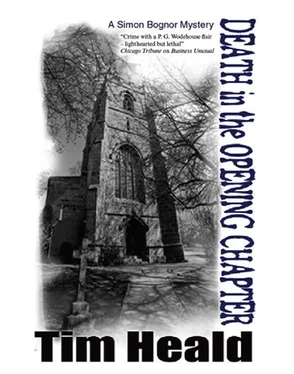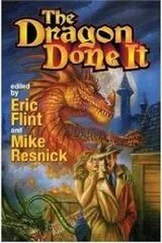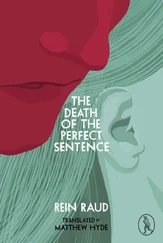Tim Heald - Death in the opening chapter
Здесь есть возможность читать онлайн «Tim Heald - Death in the opening chapter» весь текст электронной книги совершенно бесплатно (целиком полную версию без сокращений). В некоторых случаях можно слушать аудио, скачать через торрент в формате fb2 и присутствует краткое содержание. Жанр: Криминальный детектив, на английском языке. Описание произведения, (предисловие) а так же отзывы посетителей доступны на портале библиотеки ЛибКат.
- Название:Death in the opening chapter
- Автор:
- Жанр:
- Год:неизвестен
- ISBN:нет данных
- Рейтинг книги:5 / 5. Голосов: 1
-
Избранное:Добавить в избранное
- Отзывы:
-
Ваша оценка:
- 100
- 1
- 2
- 3
- 4
- 5
Death in the opening chapter: краткое содержание, описание и аннотация
Предлагаем к чтению аннотацию, описание, краткое содержание или предисловие (зависит от того, что написал сам автор книги «Death in the opening chapter»). Если вы не нашли необходимую информацию о книге — напишите в комментариях, мы постараемся отыскать её.
Death in the opening chapter — читать онлайн бесплатно полную книгу (весь текст) целиком
Ниже представлен текст книги, разбитый по страницам. Система сохранения места последней прочитанной страницы, позволяет с удобством читать онлайн бесплатно книгу «Death in the opening chapter», без необходимости каждый раз заново искать на чём Вы остановились. Поставьте закладку, и сможете в любой момент перейти на страницу, на которой закончили чтение.
Интервал:
Закладка:
‘No,’ said Bognor, ‘I agree. And while DNA testing makes it possible to say who had been in the church and who had touched the rope, would it also be possible to eliminate other people who hadn’t either been in the building, or handled, what for want of a better word, one has to think of as the murder weapon?’
There was another gratifying, cogitating silence.
‘Difficult to say,’ said the expert. ‘It’s a grey area.’
‘Quite.’
He wanted to say that forensics was too often a grey area; that post-mortem examinations only told you what you already knew; and that detection was best left to detectives. The ambiguity of the autopsy to alliterate. However, he thought better of all this and merely, meekly, thanked the pathologist for his time and trouble, closed the nasty little machine, consulted his watch and realized that he had missed lunch. Even so, he needed to discuss progress with Monica. Monica was the only person, apart from the absent Contractor, on whom he could really rely.
He met her in the drive up to the manor. She was looking smug and humming. Always a bad sign. Especially when, as now, she was humming Mozart.
‘I skived off,’ she said. ‘Made my excuses and left. I’ve just been having an absolutely delicious beef sandwich at the Two by Two. Underdone beef, brown bread, fresh butter, home-made English mustard. And a glass of jolly-nice Rioja, made in an obscure village by an old man called Pablo.’
‘As one is,’ said Bognor, unamused. His tummy rumbled.
‘Not a trace of snail; not a hint of porridge,’ said his wife, not noticing. ‘Perfection. Just what the doctor ordered. Pub food as she was intended. The best of British. And Gunther came by for a chat and let me into a juicy little secret.’
There was a bench nearby, dedicated to Mavis, with dates. They sat on it. The sun shone, lemony, thin and antiseptic, bright enough but conveying no warmth.
‘Secret?’ said Bognor, envying the sandwich and the glass of wine but not saying so. He thought of the Rubaiyat and fancied himself briefly as Omar Khayaam, curbing this flight of fancy, as speedily as it had arisen.
‘He didn’t like the vicar. Hated him, in fact. I think it was mutual. The Reverend Sebastian didn’t like poofters.’
‘Plenty of gay people around. Even in Mallborne. That’s no excuse for a serious feud.’
‘They fell out over food. Gunther being gay didn’t make things easier.’
‘Everyone in Mallborne fell out over food with Gunther. He’d be all very well in Bray. Or even Padstow. But Mallborne is another matter. They don’t go for his sort of scoff. It’s classic meat and two veg country.’
‘I know, I know.’ Monica knew. ‘The point is that it could be a motive. Gunther thinks so anyway. There was a grudge which persisted; business was unfinished. Worst of all there was a campaign on some allegedly impartial website. Lots of anonymous people claimed to have eaten at the Two by Two and hated it. Some even alleged food poisoning. Gunther thinks the vicar was behind it. He’s afraid it could be a strong enough motive to excite suspicion.’
Once again, Bognor exercised his scepticism. ‘He would say that. Might even think it. But at the end of the day, it’s like I say – we’ve only got his word for it.’
‘Well,’ she said, ‘he’s a worried man.’
‘Which,’ said her husband, ‘may explain the uncharacteristically orthodox beef sandwich. He saw you coming.’
His tummy rumbled agreement, but once more Monica affected not to notice.
TWENTY-FIVE
He kept thinking about the unexpected beef sandwich and glass of red wine, but had to make do with builder’s tea and biscuits. He rather liked basic tea with sugar and milk, and Branwell and Camilla provided Chocolate Olivers, which were, arguably, the best biscuits ever invented. For a man who had missed lunch, he was therefore reasonably happy.
Mallborne should, by rights, have been the cosiest place imaginable; its vicar the least likely corpse. He was reminded of the old Conan Doyle adage about the smiling English countryside being far more lethal and threatening than the mean streets of the most sinister city. Lincolnshire was more menacing than London; Gloucestershire than Glasgow; Sussex than Stoke.
It was fashionable to suggest otherwise. Chicago, Los Angeles and Detroit had meaner streets than anything funny old Britain had to offer, and latterly it was Danes and Icelanders who had acquired a reputation for really revolting killings. Scandinavians did sex; Americans assassination; the English nothing more deadly than scones with cream and strawberry jam.
And yet.
Horrible things happened in the English countryside. Harmless spinsters and blameless bachelors in picture-postcard English villages dropped dead in mysterious and often rather disgusting circumstances. Honeysuckle and roses under a roof of thatch afforded a plausible disguise, just as, let’s face it, so did much of the apparatus of the typical English village. A benign exterior often concealed something nasty. Things were just as likely to go bump in the night when you could see the Milky Way, as when the only lights were neon; the woodshed concealed as much nastiness as any tenement; and the nightshade in the environmentally friendly hedgerow was as deadly as the detritus in the gutter. Cosiness was an illusion; security a sham; there might well be honey still for tea, but only a supremely gullible innocent would accept it from a stranger.
Bognor knew all this in theory, but it didn’t make it any easier to accept when it hit him in the face. He really had thought that a few days with his old university friend and his wife in the sleepy town of the Fludds would be a happy, peaceful holiday. A literary festival, even allowing for the scratchy reputation of rival writers, was almost by definition, a somnolent affair. He had anticipated a lazy holiday, far from madding crowds and sudden death.
And now this.
‘Almost everyone in the place seems to have had a motive for killing the vicar,’ he said conversationally, chomping on a delicious biscuit.
‘Oh, come on, Simon,’ said Camilla, pouring strong black tea from an enormous silver teapot. ‘Present company excepted.’
This was Bognor’s belief but it was an exaggeration, and though acceptable, perhaps, as a figure of speech, it would not show up in any written report to which he attached his name. He was much too canny for that. What he really meant was that the Reverend Sebastian was the sort of person who was probably better off dead. What he also meant, but naturally failed to say, was that if he were the murdering kind, then he would cheerfully have murdered the Reverend Sebastian Fludd. Bognor, basically, believed that the world would be a better place without clergymen. At least, he believed that the good cleric was someone who had at least one, and preferably several, lay lives before being ordained. He also believed that successful clergymen smoked, drank, swore and probably gambled. If they did, the last they often lost. But then Bognor liked sinners and he liked losers. The dead vicar was definitely one of life’s losers, but he certainly wasn’t a sinner either. And Bognor believed that sanctimonious souls were better off dead, and that most people wished them to be so. If necessary, most people would help them on their way. Or would if they did not run a real risk of being caught.
‘Oh, all right,’ said Bognor. ‘But there are a surprising number of people who will be only too happy to see the back of the vicar.’
‘That says something about the nature of belief in today’s society,’ said Sir Branwell, drinking tea with enthusiasm. ‘Dawkins and his friends have a lot to answer for. One of the things I always liked about religion in the good old days was its non-aggressive character. It just was. No one particularly believed in stuff like transubstantiation or the virgin birth, or what have you. Never gave it much thought, if they were honest. Just formed up in their best suits on Sunday, belted out something familiar from Hymns Ancient and Modern and buggered off home until the next week’s show. It was like glue or cement. Kept everyone in their place but everyone knew where that was. Made a good noise, gave a lot of comfort. Good thing, very.’
Читать дальшеИнтервал:
Закладка:
Похожие книги на «Death in the opening chapter»
Представляем Вашему вниманию похожие книги на «Death in the opening chapter» списком для выбора. Мы отобрали схожую по названию и смыслу литературу в надежде предоставить читателям больше вариантов отыскать новые, интересные, ещё непрочитанные произведения.
Обсуждение, отзывы о книге «Death in the opening chapter» и просто собственные мнения читателей. Оставьте ваши комментарии, напишите, что Вы думаете о произведении, его смысле или главных героях. Укажите что конкретно понравилось, а что нет, и почему Вы так считаете.












